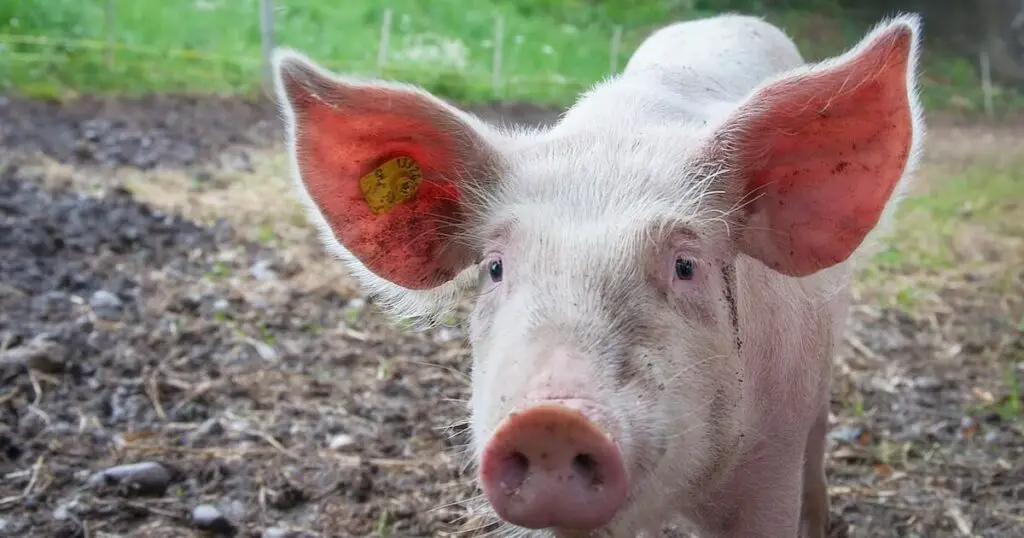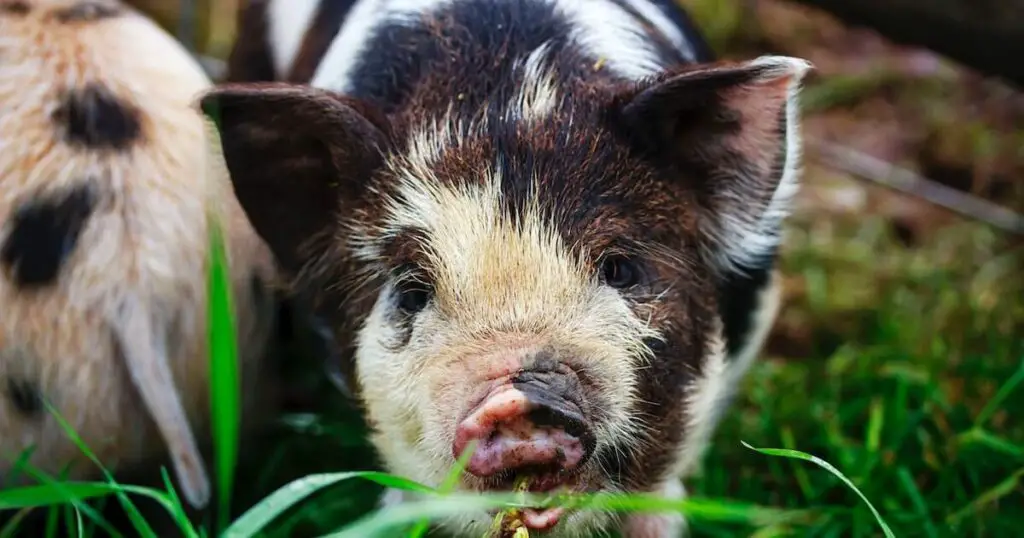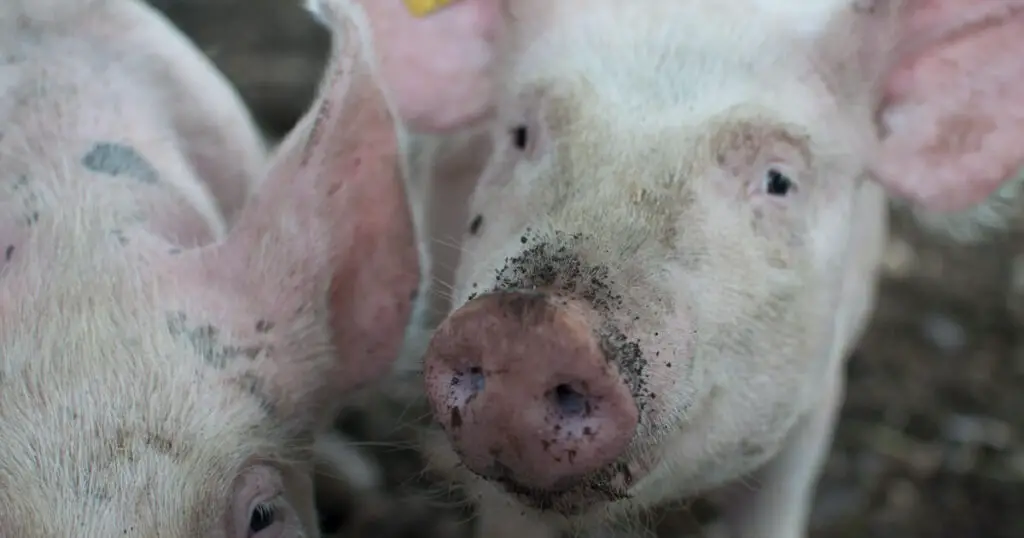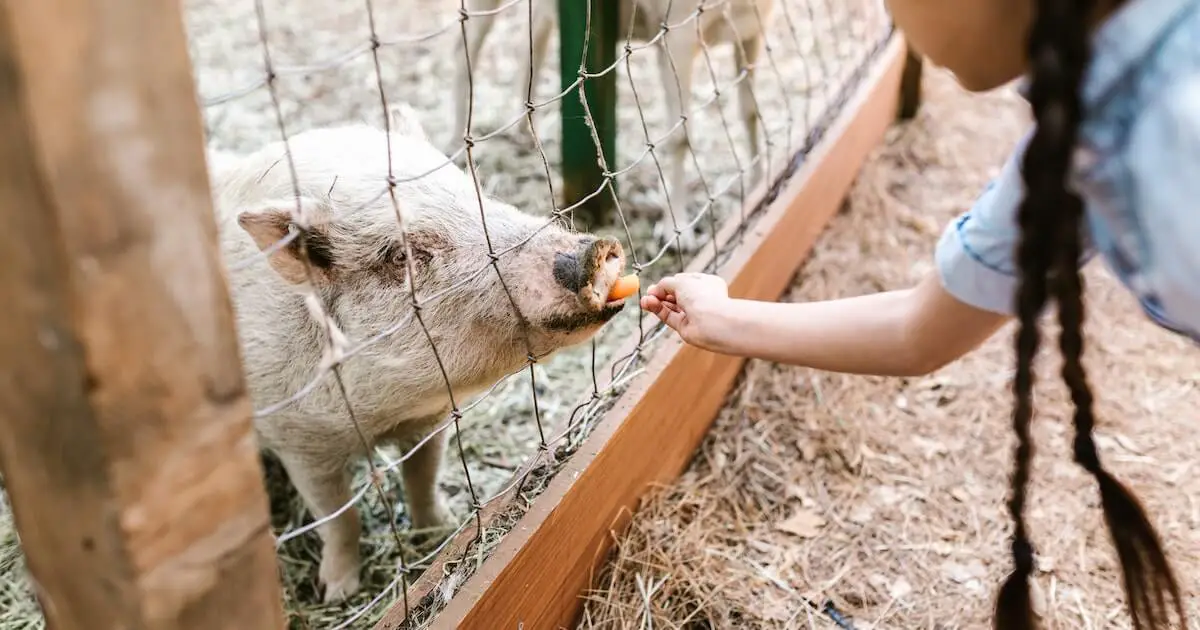In recent years, there has been a growing trend of people keeping livestock, including pigs and micropigs, as pets or for personal use. While this can be a rewarding experience for some, it can also lead to concerns and conflicts when neighbours keep pigs in residential areas. Because of this trend ‘Can my neighbour keep pigs?‘ is becoming a common question.
In this blog post, I will explore the legalities surrounding pig keeping in the UK and discuss what you can do if you find yourself facing such a situation.
Can My Neighbour Keep Pigs? The Legalities
Your neighbour can keep pigs in the UK, but it depends on local zoning laws and regulations. Check with your local authorities and communicate with your neighbour to address any concerns or issues that may arise.
Before taking any action, it is essential to research the local laws and regulations regarding pig keeping in your area. Local government or council websites often provide information on specific bylaws, restrictions, and regulations that apply to residential areas.
In addition to local laws, zoning regulations play a significant role in determining whether pig keeping is permitted in a specific area. It’s also important to consider any property-specific restrictions, such as lease agreements or homeowner association rules, which may prohibit the keeping of pigs.
To keep pigs in the UK, neighbours must comply with certain legal requirements and regulations.
Here are some key points that neighbours need to consider and comply with:
- Zoning and Planning Permission:
- Check local zoning regulations to determine if pig keeping is permitted in the area.
- Obtain any necessary planning permission or permits required for keeping pigs on the property.
- Animal Identification:
- Ensure that pigs are properly identified and registered in accordance with the legal requirements. This may include ear tagging or other approved methods of identification.
- Accommodation and Housing:
- Provide suitable and appropriate accommodation for pigs, including adequate shelter and space.
- Ensure that pig housing meets the recommended standards for health, welfare, and hygiene.
- Animal Welfare:
- Comply with the Animal Welfare Act 2006, which sets out the legal obligations for the welfare of pigs.
- Provide access to appropriate food, water, and veterinary care.
- Ensure pigs have sufficient space to exhibit natural behaviours and are not subjected to unnecessary suffering or distress.
- Disease Control and Biosecurity:
- Implement measures to prevent the spread of diseases among pigs, such as maintaining proper biosecurity protocols.
- Adhere to guidelines and regulations regarding the prevention and control of specific pig diseases, such as African swine fever or foot-and-mouth disease.
- Waste Management:
- Implement effective waste management practices to prevent environmental pollution and odours.
- Comply with regulations regarding the storage, disposal, and treatment of pig waste, including slurry or manure.
- Noise and Nuisance:
- Take measures to minimise noise and other nuisances that may impact neighbouring properties.
- Ensure that pigs do not cause excessive noise or odours that unreasonably disturb nearby residents.

It is important to note that specific requirements and regulations may vary depending on the location and circumstances.
Neighbours should consult with local authorities, such as the local council or environmental health department, for detailed guidance and to ensure compliance with all legal obligations related to keeping pigs.
The GOV.UK website has further information that may be helpful.
How Close Can Pigs Be To Houses UK?
In the UK, there are no specific regulations dictating a minimum distance between pig enclosures and houses. However, pig owners have a responsibility to ensure that their animals do not cause a nuisance or pose a health risk to neighbouring properties.
It is advisable for pig owners to consider factors such as noise, odours, waste management, and the potential impact on the well-being of nearby residents when determining the proximity of pig enclosures to houses.
In case of disputes, local authorities can assess the situation and enforce relevant regulations to address any issues.
Potential Issues With Neighbours Keeping Pigs
In the UK, pigs and pig keeping can be considered a nuisance under certain circumstances.
A statutory nuisance refers to activities or conditions that unreasonably and substantially interfere with the use and enjoyment of a property.
Here are some situations in which pig keeping may be deemed a statutory nuisance:
- Noise: Excessive noise generated by pigs can be considered a statutory nuisance. This includes persistent or frequent loud squealing, grunting, or other noises that significantly impact neighbouring properties.
- Odours: Strong and persistent odours emanating from pig pens or waste management practices can be deemed a statutory nuisance. The odours should be of such intensity and duration that they unreasonably affect the well-being and comfort of individuals in the vicinity.
- Fly Infestations: If the pig-keeping practices result in an infestation of flies, causing a significant nuisance to neighbouring properties, it may be considered a statutory nuisance.
- Health and Hygiene Issues: If the pig keeping poses a threat to public health, such as poor waste management leading to the spread of diseases or attracting vermin, it may be considered a statutory nuisance.
- Property Damage: If pigs cause substantial damage to neighbouring properties, such as rooting or escaping and causing harm or destruction, it can be considered a nuisance.
It’s important to note that determining whether a situation constitutes a statutory nuisance is subjective and dependent on the specific circumstances.
Local authorities, such as environmental health departments, are responsible for investigating and determining whether a statutory nuisance exists.
I have an article on contacting the environmental health department that you can read here.
If you believe that pig keeping in your area is causing a statutory nuisance, it is advisable to contact your local environmental health department or council enforcement teams.
I also have an article on the process of making a complaint with the council about a neighbour that you can read here.
They have the authority to assess the situation, conduct investigations, and take appropriate action to address the nuisance if it is found to violate statutory regulations.

What Should I Do if My Neighbour’s Pigs Are Causing a Nuisance?
Living in close proximity to neighbours can sometimes lead to conflicts and disagreements.
When faced with issues related to neighbours keeping pigs, it is important to find effective solutions that promote understanding and maintain harmony within the community.
This section will provide guidance on how to navigate and address concerns through open communication, mediation, and involving appropriate local authorities if necessary.
If a neighbour is keeping pigs that are creating a nuisance in the UK, there are several steps you can take to address the situation:
Step 1 – Document the Nuisance:
Keep a record of specific instances where the pig keeping is causing a nuisance.
Note the date, time, and nature of the nuisance, such as excessive noise, strong odours, or property damage. Take photographs or videos if possible to support your claims.
I have a blog on how to gather evidence for a neighbour dispute that you can read here.
Step 2 – Talk to your Neighbour:
Approach your neighbour in a calm and friendly manner to discuss the issues you are facing.
Share your concerns about the specific nuisances caused by the pig keeping and how they are affecting you.
Try to find a resolution through open communication.
Step 3 – Mediation:
If direct communication does not resolve the issue, consider mediation.
Mediation services can help facilitate a conversation between you and your neighbour, with a neutral third party present to help find a mutually acceptable solution.
Contact your local mediation service or community organisation for assistance. You can find out more information here.
Step 4 – Research Local Laws, Regulations and Title Deeds:
Familiarise yourself with the local laws, bylaws, and regulations regarding pig keeping in your area.
Check if any specific noise or nuisance regulations apply. This information will help you understand your rights and provide a basis for further action if needed.
If you have any questions, contact your local council and they will be able to answer your questions.
It is also advisable to review the title deeds of your neighbour’s property to ascertain whether keeping pigs on the land is permitted or restricted.
Examining the title deeds will provide crucial information regarding any specific covenants, restrictions, or permissions related to livestock keeping, ensuring a comprehensive understanding of the legal obligations surrounding pig ownership in that particular property.
You can search for this information on the Land Registry online. You will need to pay a fee to obtain the details, which can vary depending on the type of search you require.
The Land Registry charges around £3 for you to download the title. The gov.uk website provides a clear guide on how to obtain a copy of the title, which can be accessed here: https://www.gov.uk/guidance/land-registry-portal-how-to-request-official-copies#request-an-official-copy-of-a-register-title-plan-or-document.
Step 5 – Contact Local Authorities:
If the nuisance continues and direct communication and mediation have been unsuccessful, contact the relevant local authorities.
This may include the environmental health department or council enforcement teams in your area.
File a formal complaint, providing them with documented evidence of the nuisances caused by the pig keeping.
Step 6 – Seek Legal Advice:
If all other options have been exhausted, consider seeking legal advice from a solicitor who specialises in property or nuisance law.
They can guide you on the legal remedies available to address the situation and help you navigate the legal process if necessary.
Remember, it is essential to approach the situation with empathy and a willingness to find a resolution that satisfies both parties.
Keeping open lines of communication and attempting to resolve the issue amicably should be the first course of action.
Legal action should be considered as a last resort when all other options have been explored.
The following might be of interest to you:
- Wildlife Or Nuisance? How To Deal With Neighbours Feeding Foxes
- Neighbours Feeding Pigeons & Seagulls (This Is What To Do)
- Neighbour’s Chickens Attracting Rats? What You Need To Know
- The Buzz On Beekeeping Laws UK: How To Avoid Conflicts With Neighbours

‘Can My Neighbour Keep Pigs?’ Final Thoughts
Living near neighbours who keep pigs can pose challenges, but there are steps you can take to address the situation.
Start by researching local laws and regulations, and then address concerns such as noise, odours, health, hygiene, and property damage through open communication with your neighbours. Engage in a respectful dialogue, sharing your concerns and seeking potential solutions together.
If communication fails to resolve the issues, involving local authorities, such as environmental health departments or council enforcement teams, may be necessary. These authorities have the expertise to investigate and enforce regulations related to pig keeping.
In cases where legal remedies are required, it is advisable to seek legal advice. A professional can guide you through the process, helping you understand your rights and potential courses of action.
Remember to gather and document evidence of the negative impacts caused by pig keeping, as this will support your case if legal action becomes necessary.
I hope this blog has answered your question ‘Can my neighbour keep pigs’ and you manage to find a solution with your neighbour.





Leave a Reply